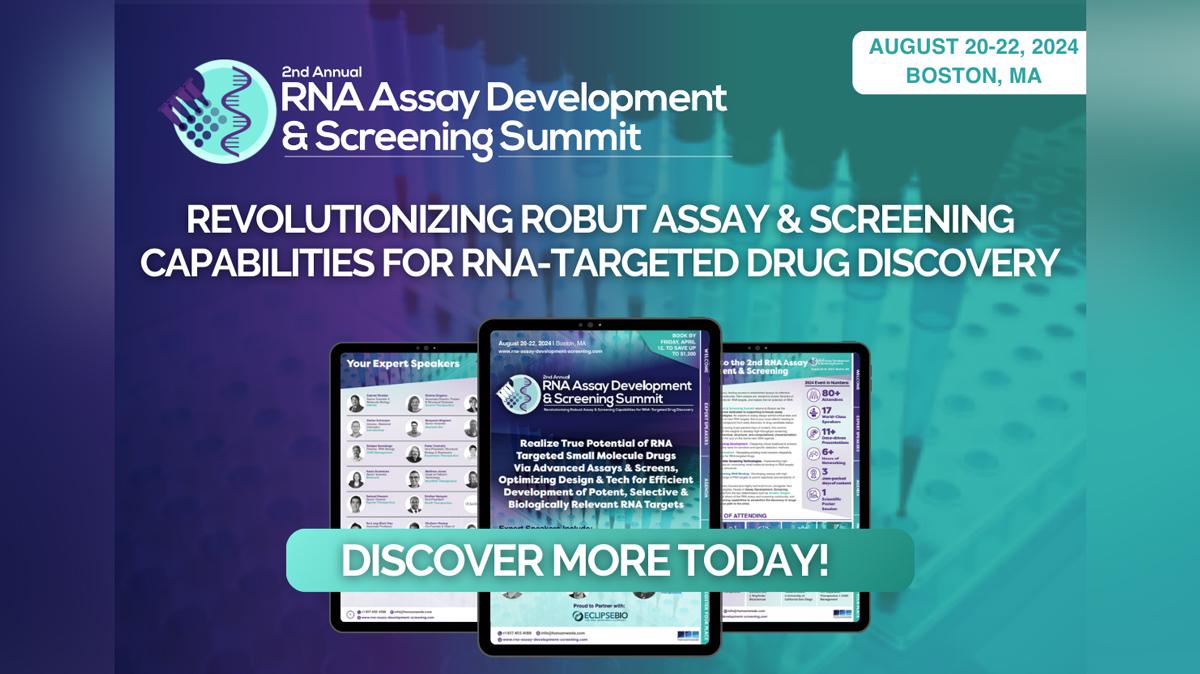It’s time for more tech and biotech innovation in 2023

The drive to make the UK a ‘scientific powerhouse’ was central to the government’s announcement closing out 2022, which appointed five industry experts to lead on the sectors most vital to UK’s future innovation. As Chancellor of the Exchequer Jeremy Hunt said: “I want British firms to lead the world in turning fantastic science into new products and services – and we need to make sure government is doing everything we can to encourage innovation and competition.”
For biotech to achieve our societal goals, we need to build up the foundational systems that support modern science. Government investment will be critical. Technological resources will also be instrumental — from overcoming current technical skills gaps to modernising how we move novel cell and gene therapies from R&D and intro production, to ensuring scientists are set-up for success with AI for drug discovery. I come at this from the perspective of a technologist working in the biotech sector, and the trends that I’m focused on are about applying the tech industry’s knack for innovation to the biotech industry’s greatest bottlenecks and foundational systems’ needs.
1. AI has unintended consequences on biotech, and that’s a good thing.
The biotech industry is starting to see real progress with AI-focused drug discovery companies reaching meaningful milestones or readouts of clinical trials – Relay Therapeutics and Recursion are two examples. These successful readouts are catalysing more investment into the space. Big pharma has done $20 billion of AI-based drug discovery deal-making in the last 12 months alone, spending hundreds of millions upfront. This is also driving more partnerships between pharma and AI players, with 67 partnerships in 2021, a threefold increase in the last three years (GlobalData, 2022).
For an industry that has historically prized lone discovery or collaboration around a single molecule, AI is creating a lot of collaboration and partnership surface area in biotech, and it's also requiring labs to collaborate on massive data sets.
AI in biotech will be a forcing function for biotechs to accelerate hiring of data scientists and AI and ML roles, and to create better data standardisation and stronger digital data backbones. These changes will not only benefit the application of AI and ML in biotech, but will lead to improvements in scalability and efficiency in R&D in general.
2. Biomanufacturing, not just biology research, will become the focus of innovation
Today’s reality is that many patients are unable to access everything from basic treatments for the flu to complex cures for diseases like cancer because of limitations in biomanufacturing.
With CAR-T therapy for multiple myeloma as an example, the median wait time for a treatment slot is seven months, during which the cancer can progress to a point where it will no longer be beneficial. Biomanufacturing is a major bottleneck here. There aren’t enough CAR-T manufacturing facilities and the process of manufacturing these bespoke treatments, which rely on patients’ unique cells, is often entirely manual. Manufacturing sites rely on paper and pen to capture all the manufacturing data: not only does this slow things down, it also introduces a higher potential for error compared to digital systems.
If the record keeping can be made entirely electronic and easily shared across all the stakeholders in the manufacturing process, like the hospital, shippers, and drugmakers, CAR-T cells could be made an estimated 40% faster. Innovative biotechs are starting to address this problem.
3. Tech workers leave big tech for biotech and don’t look back.
More than 150,000 workers globally have recently left tech and are looking for the next opportunity. They’re seeking more meaning, more impact, and a bigger challenge.
Biotech is the next big thing. Not crypto, not the metaverse. Technologists are waking up to the fact that biotech offers the most interesting data and software challenges of this century. They want to work on groundbreaking innovations with potential for real-world impact, and biotech is an industry that’s curing disease, combating climate change, and eliminating hunger.
It’s also an industry where technologists have recently made massive contributions, whether it’s getting COVID vaccines to market faster or making unprecedented advancements in predictive AI, like Chroma from Generate Biomedicines. And this is just the beginning. Tech’s superpower is in making complex systems simple, accessible, and scalable. Tech workers have spent decades transforming industries with a cloud-first, digital, and data-driven approach. Now, they’re leaving tech for tech’s sake and applying their lessons learned to the R&D lab.
Tech workers have the skills that biotech needs today. Biotech will build on this moment and ramp up hiring of data scientists, ML experts, and software engineers.
About the author
 Ashu Singhal is co-founder of Benchling. Since co-founding Benchling in 2012, Ashu has overseen the company’s rapid growth. As co-founder, Ashu is responsible for leading product development and strategy, helping scientists increase their productivity, collaborate more effectively, and reach new data-driven insights. Before Benchling, he co-founded a social media analytics company that was acquired by Twitter. He holds a B.S. in computer science and mathematics from the Massachusetts Institute of Technology.
Ashu Singhal is co-founder of Benchling. Since co-founding Benchling in 2012, Ashu has overseen the company’s rapid growth. As co-founder, Ashu is responsible for leading product development and strategy, helping scientists increase their productivity, collaborate more effectively, and reach new data-driven insights. Before Benchling, he co-founded a social media analytics company that was acquired by Twitter. He holds a B.S. in computer science and mathematics from the Massachusetts Institute of Technology.












